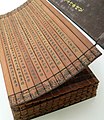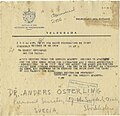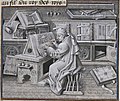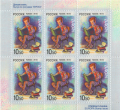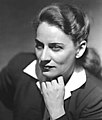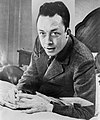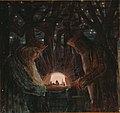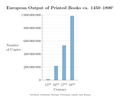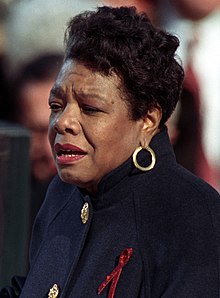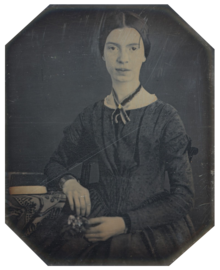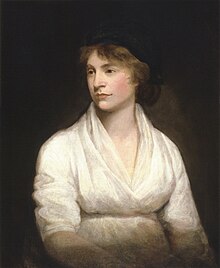Portal:Literature
Introduction

Literature is any collection of written work, but it is also used more narrowly for writings specifically considered to be an art form, especially novels, plays, and poems. It includes both print and digital writing. In recent centuries, the definition has expanded to include oral literature, much of which has been transcribed. Literature is a method of recording, preserving, and transmitting knowledge and entertainment. It can also have a social, psychological, spiritual, or political role.
Literary criticism is one of the oldest academic disciplines, and is concerned with the literary merit or intellectual significance of specific texts. The study of books and other texts as artifacts or traditions is instead encompassed by textual criticism or the history of the book. "Literature", as an art form, is sometimes used synonymously with literary fiction, fiction written with the goal of artistic merit, but can also include works in various non-fiction genres, such as biography, diaries, memoirs, letters, and essays. Within this broader definition, literature includes non-fictional books, articles, or other written information on a particular subject. (Full article...)
General images -
"Ode on a Grecian Urn" is a poem written by the English Romantic poet John Keats in May 1819 and published anonymously in the January 1820, Number 15 issue of the magazine Annals of the Fine Arts. The poem is one of several "Great Odes of 1819", which include "Ode on Indolence", "Ode on Melancholy", "Ode to a Nightingale", and "Ode to Psyche". Keats found earlier forms of poetry unsatisfactory for his purpose, and the collection represented a new development of the ode form. He was inspired to write the poem after reading two articles by English artist and writer Benjamin Haydon. Keats was aware of other works on classical Greek art, and had first-hand exposure to the Elgin Marbles, all of which reinforced his belief that classical Greek art was idealistic and captured Greek virtues, which forms the basis of the poem.
"Ode on a Grecian Urn" was not well received by contemporary critics. It was only by the mid-19th century that it began to be praised, although it is now considered to be one of the greatest odes in the English language. A long debate over the poem's final statement divided 20th-century critics, but most agreed on the beauty of the work, despite various perceived inadequacies.
Selected excerpt
| “ | When in 1892 I settled in Macao, a small island near the mouth of the Canton river, to practise medicine, I little dreamt that in four years time I should find myself a prisoner in the Chinese Legation in London, and the unwitting cause of a political sensation which culminated in the active interference of the British Government to procure my release. It was in that year however, and at Macao, that my first acquaintance was made with political life; and there began the part of my career which has been the means of bringing my name so prominently before the British people. | ” |
| — Sun Yat-sen, Kidnapped in London | ||
More Did you know
- ... that an episode in Shakespeare's A Midsummer Night's Dream may have been a "riff" on the medieval German poem Der Busant?
- ... that Spock Must Die! and Spock, Messiah! were the first two original novels for adults to be written in the Star Trek universe?
- ... that the poem Nachuk Tahate Shyama, written by Swami Vivekananda, relates to one's surrender to the Hindu goddess Kali?
- ... that in 1845 Robert Browning met Elizabeth Barrett and wrote "Meeting at Night", the "most sensual poem" he had written up to that time?
- ... that according to James Joyce, Édouard Dujardin's 1887 novel Les Lauriers sont coupés is the first example of the stream of consciousness technique?
Selected illustration
Did you know (auto-generated) -

- ... that Polish Renaissance poet Jan Kochanowski – considered "the founding father of Polish literature" – wrote threnodies, the first Polish-language tragedy, and epigrams?
- ... that Robert Aiello's first novel was published after literary agents turned it down roughly 60 times?
- ... that a teacher of medieval literature and comic books writes the blog Rex Parker Does the NYT Crossword Puzzle?
- ... that Al-Wishah fi Fawa'id al-Nikah, a 15th-century Islamic sex manual by Egyptian writer Al-Suyuti, was based on both traditional hadith literature and material influenced by Indian erotology?
- ... that more than 1000 tons of paper were used every year printing car literature for the British Motor Corporation by the in-house Nuffield Press?
- ... that there is a Gambian literature even though it has been argued that there is "minimal basis" for its existence?
Today in literature
- 1872 - Zane Grey, American Western writer born
- 1905 - John O'Hara, American writer born
- 1923 - Norman Mailer, American writer born
- 1933 - John Galsworthy, English writer died
- 1935 - Kenzaburo Oe, Japanese writer born
- 1944 - Jean Giraudoux, French writer died
- 2001 - Gordon R. Dickson, Canadian writer died
Topics
| Literature: | History of literature · History of the book · Literary criticism · Literary theory · Publishing |
| By genre: | Biography · Comedy · Drama · Epic · Erotic · Fable · Fantasy · Historical fiction · Horror · Mystery · Narrative nonfiction · Nonsense · Lyric · Mythopoeia · Poetry · Romance · Satire · Science fiction · Tragedy · Tragicomedy · more... |
| By region: | African literature · Asian · European · Latin American · North American · Oceanic |
| By era: | Ancient literature · Early medieval · Medieval · Renaissance · Early Modern · Modern |
| By century: | 10th century in literature · 11th · 12th · 13th · 14th · 15th · 16th · 17th · 18th · 19th · 20th · 21st |
| Recent: | 2018 in literature· 2017 · 2016 · 2015 · 2014 · 2013 · 2012 · 2011 · 2010 · 2009 · 2008 · 2007 · more... |
Categories
Related portals
| Concepts: | |
| Genres: | |
| Religions: |
Things you can do
Related WikiProjects
WikiProjects related to literature:
| Concepts: | Biographies · Books · Comics · Magazines · Manga · Novels · Poetry · Short stories · Translation studies |
| Genres: | Alternate history · Children's literature · Crime · Fantasy · Horror · Mythology · Romance · Science fiction |
| Authors: | Honoré de Balzac · Roald Dahl · William Shakespeare |
| Series: | Artemis Fowl · Chronicles of Narnia · Discworld · Harry Potter · His Dark Materials · Hitchhiker's Guide to the Galaxy · Inheritance Cycle · James Bond · King Arthur · Middle-earth · Percy Jackson · Redwall · A Series of Unfortunate Events · Shannara · Sherlock Holmes · A Song of Ice and Fire · Star Wars · Sword of Truth · Twilight · Warriors · Water Margin · Wizard of Oz |
| Regions: | Australian literature · Indian literature · Persian literature |
Associated Wikimedia
The following Wikimedia Foundation sister projects provide more on this subject:
-
Commons
Free media repository -
Wikibooks
Free textbooks and manuals -
Wikidata
Free knowledge base -
Wikinews
Free-content news -
Wikiquote
Collection of quotations -
Wikisource
Free-content library -
Wikiversity
Free learning tools -
Wiktionary
Dictionary and thesaurus

